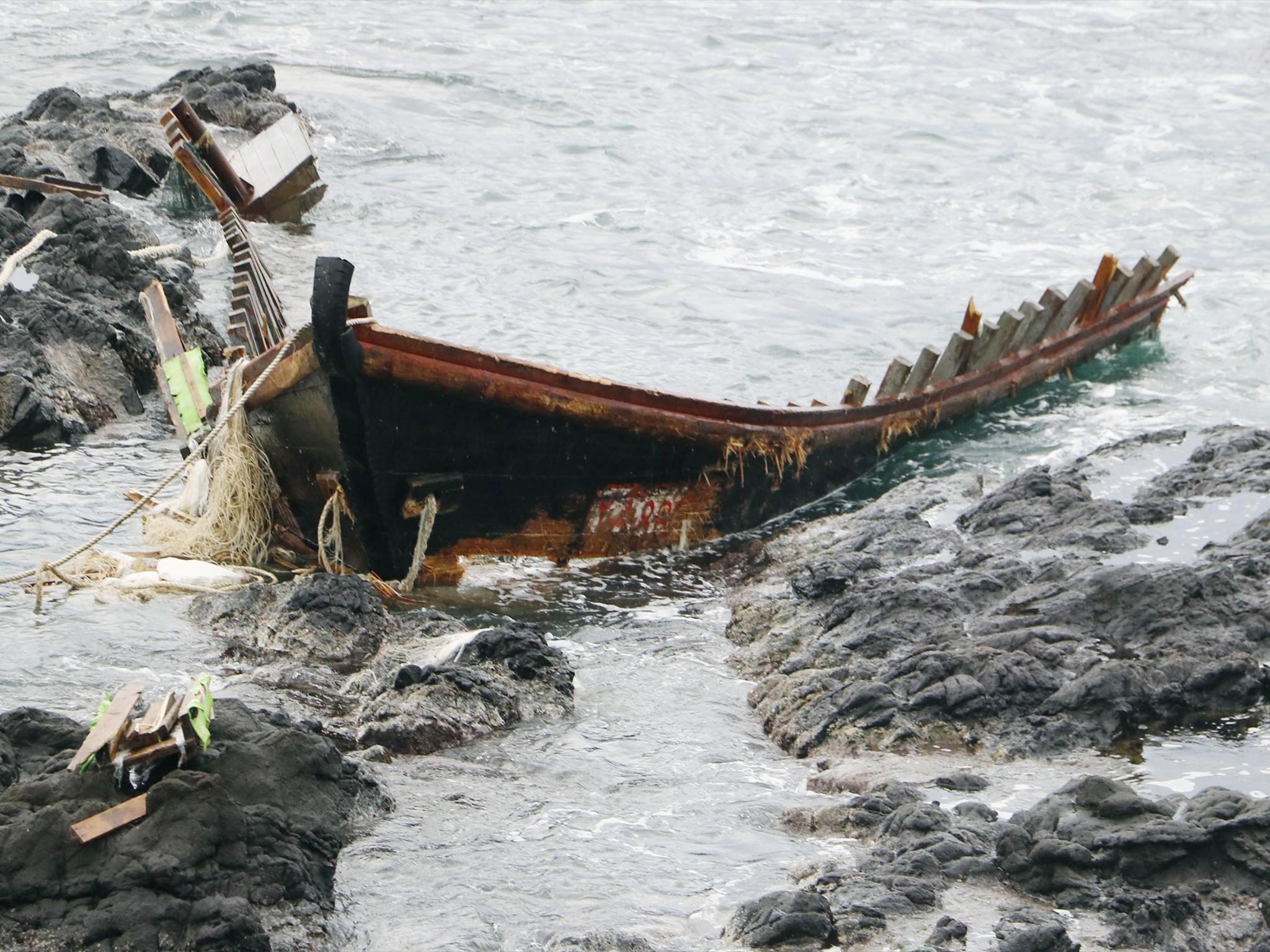More North Korean ‘ghost boats’ and bodies wash up on Japan’s shores
Some of the rafts found include skeletons, as the pressure of sanctions means fishers must take greater risks

Your support helps us to tell the story
From reproductive rights to climate change to Big Tech, The Independent is on the ground when the story is developing. Whether it's investigating the financials of Elon Musk's pro-Trump PAC or producing our latest documentary, 'The A Word', which shines a light on the American women fighting for reproductive rights, we know how important it is to parse out the facts from the messaging.
At such a critical moment in US history, we need reporters on the ground. Your donation allows us to keep sending journalists to speak to both sides of the story.
The Independent is trusted by Americans across the entire political spectrum. And unlike many other quality news outlets, we choose not to lock Americans out of our reporting and analysis with paywalls. We believe quality journalism should be available to everyone, paid for by those who can afford it.
Your support makes all the difference.Three bodies of people believed to be North Koreans were recovered in northern Japan on Monday, two days after authorities found a dilapidated empty boat, coast guard officials said.
The coast guard said a Japanese fishing boat picked up a male body floating off the coast of Sakata in Yamagata prefecture and two more bodies washed up on a nearby beach an hour and a half later. The bodies were decomposed, but one had a lapel pin thought to be North Korean.
Officials are investigating if the bodies were from the severely damaged boat that washed ashore on Saturday.
Winds and water currents push dozens of boats onto Japan's northern coasts annually. Rickety North Korean fishing boats are particularly vulnerable because they lack the sturdiness and equipment to return home.
But the alarming pace over the past few weeks has prompted Japanese authorities to step up patrols.
Twenty-eight of the vessels — dubbed "ghost boats" — were detected in November, up from just four in November last year. Usually, only the boats, sometimes with bodies inside, or fragments wash ashore. It is rare for survivors to be rescued and brought ashore. Coast guard officials have recovered at least 18 bodies this year.
The increase may be related to a campaign pushed by leader Kim Jong-un to boost fish harvests as a means of increasing sources of protein for the nation, which continues to fall short of food self-sufficiency and remains vulnerable to health problems caused by the lack of a varied, balanced diet.
In order to reach their quotas, the North Korean fishermen may be taking more risks and venturing further from their usual waters, approaching or possibly violating Japan's 200-nautical mile exclusive economic zone west of Japanese northern coasts, known for rich fishing grounds.
Japanese authorities are also holding 18 people from two other boats. They claim to be North Koreans and reportedly have expressed a desire to return home.
The first batch of 10 landed on a small uninhabited island off southern Hokkaido on a damaged fishing boat and allegedly stole electronic appliances and other items from an unmanned shelter while temporarily taking refuge from rough seas. Japan's coast guard rescued them last week.
Eight other survivors managed to reach shore in Akita on a ragged boat — which is believed to have fallen apart and sunk soon after they were rescued — and have been transferred to immigration custody.
Japanese officials said the 10 are being investigated for possible theft, while the other eight are expected to be sent home via China.
Associated Press
Join our commenting forum
Join thought-provoking conversations, follow other Independent readers and see their replies
Comments